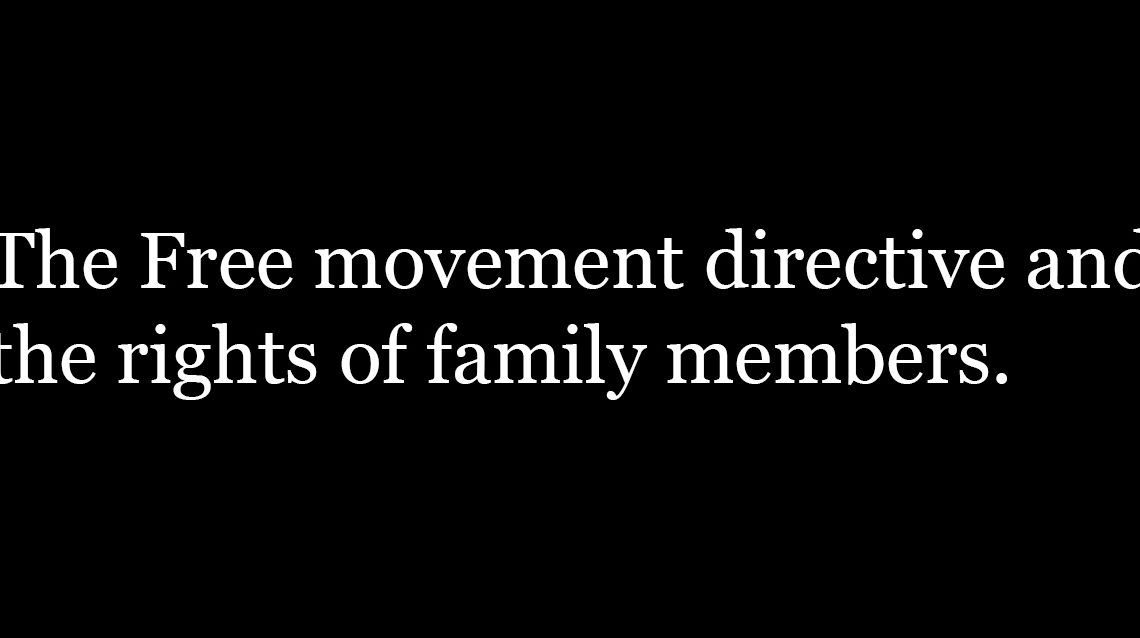The Free movement directive and the rights of family members

As a citizen of any country in the European Union or the European Economic Area (EU/EEA), you have the right to move freely around the union and stay in any member state for 90 days without any conditions except having a valid EU passport or national identity card. After 90 days, you can still stay if you can show that you are economically active, meaning that you have a right of residence.
However, if a citizen of the union, have an established relationship with a 3rd country national, meaning a citizen of a non-EU/EEA state, the citizens partner is also allowed to enter the territory of the member states and reside there legally. This also applies for the children of the EU-citizen. The reason for this is that the EU wants to provide opportunities for its citizens to move around and be economically active in the member states of the union.
Being economically active means that the EU citizen has a job or is self employed and running a business. Also, it can mean that the EU citizen has enough funds to provide for himself or herself and their family members provided the non-EU national has a comprehensive sickness insurance. Another basis for being considered economically active is if you are a student who has a comprehensive insurance and sufficient means for the residency in the EU. In some cases, being unemployed can also be considered as a part of the economically active time, provided the EU citizen has been working for at least one year and is actively trying to get a job after the previous job was lost.
When the EU citizen is economically active the EU citizen has proven its right of residence. This right of residence in then extended to the family members of the EU citizen. While the EU-citizen does not need any registration or residence permit, the family member who is not an EU-citizen needs to, within three months, apply to the Migration Agency to be granted a residence card. Together with the application a copy of the EU citizens passport or national ID-card and his or her proof of economical activity, a copy of the non-EU citizens passport and a marriage certificate or, in the case of cohabits, documents showing that the partners have an established relationship. For a child, a birth certificate needs to be submitted.
A residence card is issued for a validity of five years. After five years the non-EU-citizen can apply for a permanent residence card. When applying for a permanent residence card the EU-citizen and the non-EU national need to proof that they have been economically active, without interruptions, for the last five years. When this card has been issued, both the EU-citizen and non-EU national can apply for citizenship in Sweden.
At H I Law Firm we have profound experience regarding the Free Movement directive and the EU-law that regulates the free movement for both the EU citizen and their family members. If you need support in your application, you can make a reservation with us for legal consultation. Also, if you have a case that has been denied by the Migration Agency, we are experienced within this area and are able to assist you with appealing your decision.
Best regards,
H I Juristbyrå
info@hilaw.se
08-6840 55 55

